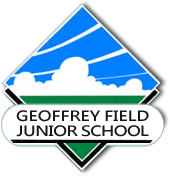Science
Science Curriculum at Geoffrey Field Junior School
The aims of our science curriculum
At Geoffrey Field Juniors, we recognise the importance of Science as a core subject and understand how its skills and enquiries help build a better understanding in a wide range of subjects, both in school and beyond. We believe science helps cultivate our children’s minds through the acquisition of knowledge, concepts, skills and positive attitudes. Throughout their time at Geoffrey Field Junior School, the children will acquire and develop the key knowledge that has been identified within each unit as well as the application and progression of the Working Scientifically skills. We want our children to be excited by science and inspired by the opportunities that the subject can give them in the future.
Our Science curriculum aims to ensure that all children:
- Develop scientific knowledge through the specific disciplines of biology, chemistry and physics.
- Develop understanding of nature, processes and methods of science through different types of scientific enquiry that help them to answer scientific questions about the world around them.
- Are equipped with the skills required to understand the uses and implications of science, today and for the future.
- Can build on their prior knowledge from earlier learning.
At GFJS, Science ensures we are ‘All Learning Together’ helping our children recognise how science can expand their opportunities and broaden their futures.
Our Science Curriculum
We want our children to have a positive attitude to science and our curriculum reinforces that all children are capable of achieving high expectations.
- Questioning is used to reinforce and assess conceptual knowledge and skills.
- There is a planned progression of skills throughout the school. This enables the children to practise the skills learnt in different units and develop them as they build on their prior learning.
- Through practical investigations children are encouraged to explore and problem solve to discover the answers to questions including their own.
- As a school we promote child led investigations which ensures that children use their natural curiosity to question, explore and research scientific problems independently. As the children’s knowledge and understanding increases, they become more proficient in selecting and using scientific equipment, collating and interpreting their results. This develops confidence in their own scientific abilities and allows them to form their own conclusions based on real evidence.
Science Units
The table below shows the units which are taught in each year group.
Scientific Skills
The progression of skills is built on those learnt in KS1 and there are small progression steps in each year group. The children have the opportunity to repeat the skills in different topics so they are learning the skills in different contexts.
The skills taught are allocated to the following categories:
- questioning
- observation
- using equipment/measuring
- planning
- fair testing
- predictions
- communicating findings
- drawing conclusions
- vocabulary
- research
The link below gives further details on the progression of our scientific skills.
Localised Curriculum
At Geoffrey Field, our localised curriculum is woven into our science curriculum, to ensure we focus on areas of importance and barriers for our pupils.
- Personal health and well-being – Many of our science units are linked to personal health and well-being.
- Vocabulary – Two or three words are carefully chosen that are linked to the unit but can also be used in other areas. Children are explicitly taught the words and these are revisited regularly. Technical words that are specific to the unit of work are also taught at the appropriate time.
- Oracy – Children are given the opportunity to work in groups, lead their own investigations and present their findings.
- Understanding of the wider world – Through the units taught children will study issues which impact the wider environment and important figures in the scientific world.

